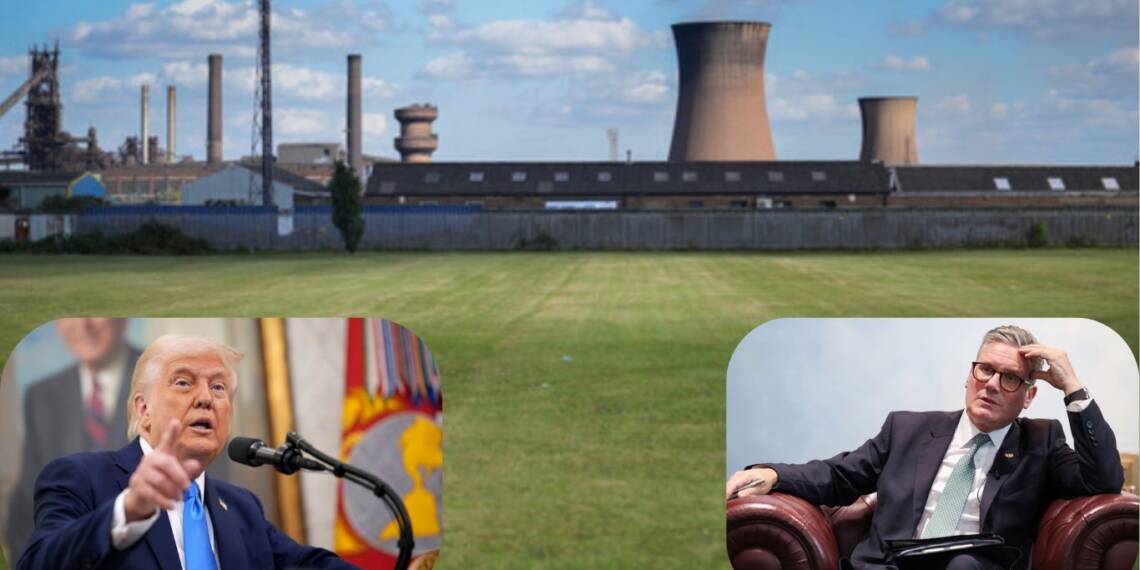The effect of Trump’s tariff has started showing its early trends. The first shocks have come from the UK, where the last remaining virgin steel producer has announced plans to shut down its final plant, citing “challenging market conditions,” including the 25% tariff on steel imports imposed by US President Donald Trump.
Last month, Trump introduced sweeping duties on key metal imports, with tariffs on all steel and aluminum entering the US taking effect on March 12.
According to British Steel’s statement, “The blast furnaces and steelmaking operations are no longer financially sustainable due to highly challenging market conditions, the imposition of tariffs, and higher environmental costs relating to the production of high-carbon steel.”
The Scunthorpe plant has been losing £700,000 ($900,000) per day, despite over £1.2 billion invested by its Chinese owner, Jingye, since 2020. The announcement follows weeks of deadlock between Jingye and the UK government over a rescue package. London has been encouraging steelmakers to transition to greener technologies, such as electric arc furnaces (EAFs), despite concerns that the costly shift will increase the country’s dependence on foreign steel supplies.
Reports last week indicated that Jingye rejected the UK government’s latest £500 million subsidy offer, saying that the new furnaces would require over £2 billion, with half the cost needing to be covered by London.
British Steel is set to begin redundancy consultations with unions and is considering three scenarios: shutting down in June if no agreement is reached, or implementing temporary closures in September or later if funding is secured. Between 2,000 and 2,700 jobs are at risk.
Energy Minister Sarah Jones told parliament on Thursday that while the government prefers negotiations to resume, it is “looking at all options,” including the potential nationalization of the company. Business Secretary Jonathan Reynolds emphasized that the government is “working tirelessly” to find a resolution.
The UK steel sector, once a global leader employing over 300,000 people, now contributes just 0.1% to the national economy.
Last year, Indian-owned Tata Steel announced the closure of its final two blast furnaces at Port Talbot in Wales. However, Tata later secured a £500 million government subsidy as part of a £1.25 billion plan to replace them with EAFs, which are expected to be operational by 2027.
US President Donald Trump has reaffirmed his commitment to imposing fresh tariffs, a move that could disrupt global trade relations. Speaking on Monday, Trump insisted that these “reciprocal tariffs” were necessary because the US had been “ripped off by every country in the world.” He described his decision as “Liberation Day” for the American economy.








